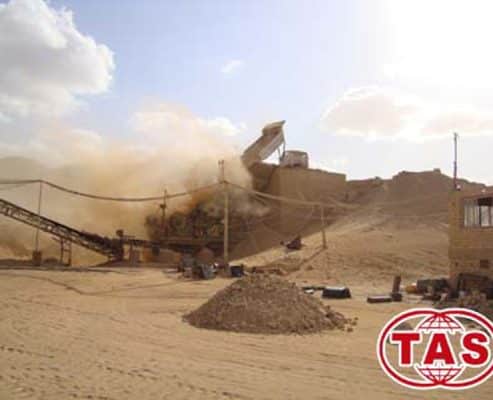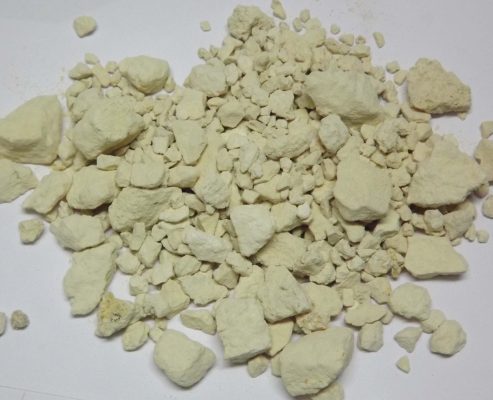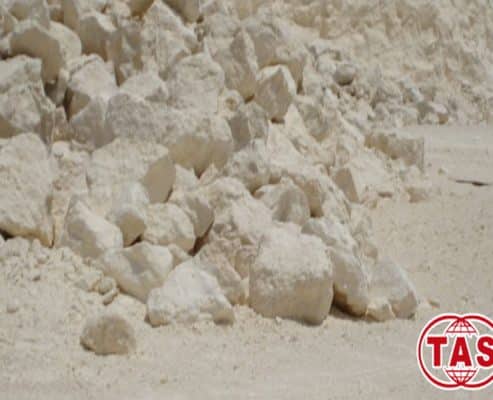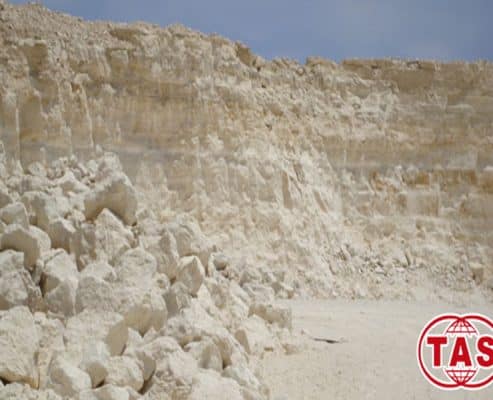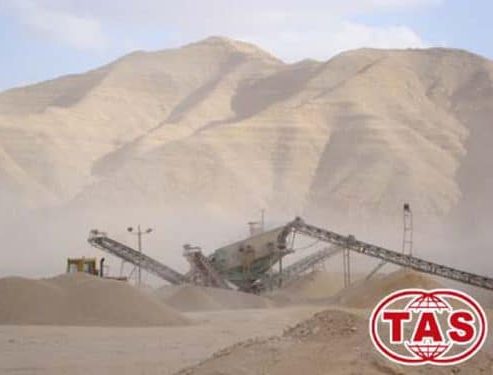Dolomite CaMg (CO3)2
Dolomite: un minerale e una roccia versatile
La dolomite è un materiale affascinante che esiste in due forme: un minerale e una roccia. Come minerale, la dolomite è un carbonato anidro composto da carbonato di calcio e magnesio, idealmente in un rapporto 1:1 (CaMg(CO3)2). Questo minerale è un componente chiave della roccia sedimentaria chiamata anche dolomite, composta principalmente da cristalli di dolomite. I geologi a volte usano il termine “dolomia” per distinguere la roccia dal singolo minerale stesso.
Specifica dei carbonati di calcio e magnesio
| Identificazione prodotto | |
| ELEMENT | RISULTATO% |
| SiO2 | 0.01 |
| AL2O3 | 0.15 |
| MgO | 21.2 |
| CaO | <30.4 |
| Fe2O3 | 0.07 |
| TiO2 | 0.01 |
La versatilità della dolomite va oltre la geologia
Sebbene la dolomite svolga un ruolo significativo nella crosta terrestre, i suoi usi si estendono ben oltre le sue origini geologiche. Ecco uno sguardo alle sue diverse applicazioni:
Costruzione: La forma frantumata della Dolomite funge da prezioso aggregato nel calcestruzzo, contribuendo alla resistenza e alla durata. Può anche essere tagliato e lucidato per essere utilizzato come attraente pietra ornamentale.
Fonte di magnesio: La dolomite è una fonte chiave di ossido di magnesio (MgO), un composto industriale vitale utilizzato in vari prodotti. Il processo Pidgeon utilizza anche la dolomite per la produzione del magnesio metallico.
Energia e risorse: Le formazioni dolomitiche fungono da importanti serbatoi di petrolio, immagazzinando preziose risorse di petrolio e gas. Inoltre, queste formazioni fungono da rocce ospiti per depositi significativi di metalli di base come piombo, zinco e rame, facilitandone l’estrazione.
Processi industriali: Quando la calcite calcarea è scarsa o costosa, la dolomite può fungere da flusso sostitutivo nella fusione del ferro e dell'acciaio.
Produzione del vetro: Grandi quantità di dolomite lavorata svolgono un ruolo cruciale nella produzione di vetro float, un tipo di vetro piano comunemente utilizzato nelle finestre e in altre applicazioni.
Orticoltura: Nel mondo del giardinaggio, sia la dolomite che il calcare dolomitico rappresentano preziosi ammendanti per terricci e miscele per vasi fuori suolo. Agiscono come tampone del pH, aiutando a regolare l'acidità del suolo e forniscono una fonte essenziale di magnesio per una crescita sana delle piante.
Acquari marini: Negli acquari marini la dolomite può essere utilizzata come materiale di substrato. Aiuta a mantenere livelli di pH stabili agendo come un tampone, fondamentale per la salute della vita marina.
Il ruolo sorprendente di Dolomite nello svelare i misteri dell'universo
Al di là delle sue numerose applicazioni industriali e agricole, la dolomite trova una nicchia unica nel regno della scoperta scientifica. I ricercatori di fisica delle particelle utilizzano strati di dolomite per proteggere i loro delicati rilevatori dalle radiazioni di fondo indesiderate.
Ecco perché la dolomite è così adatta a questo scopo:
Bassa radioattività: La dolomite contiene naturalmente quantità minime di materiali radioattivi. Questo è fondamentale perché qualsiasi radioattività intrinseca all’interno del materiale schermante contribuirebbe alla radiazione di fondo, rendendo più difficile rilevare i deboli segnali di particelle esotiche.
Isolamento efficace: La dolomite funge da barriera contro i raggi cosmici, che sono particelle ad alta energia che bombardano costantemente la Terra dallo spazio. Filtrando questo rumore cosmico, i ricercatori possono concentrarsi sui segnali sottili generati dalle collisioni di particelle all'interno dei loro rilevatori.
Questa inaspettata applicazione della dolomite evidenzia la versatilità di questo straordinario minerale e il suo potenziale contributo all’avanzamento della nostra comprensione degli elementi fondamentali dell’universo.
Si prega di inviare le vostre richieste

